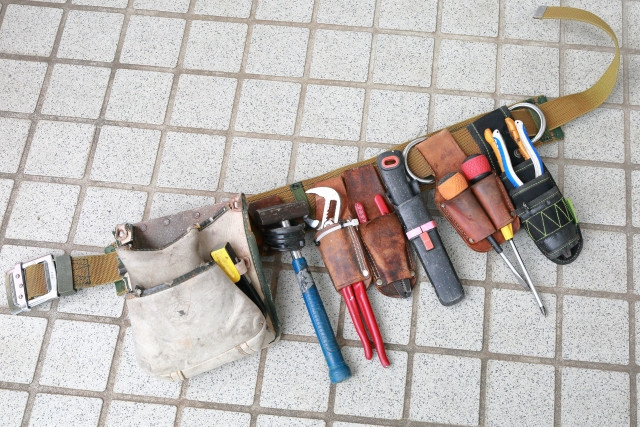Demographic changes partnered with continuous economic growth in Japan demand an increase in the workforce. Skilled workers participate directly with this increasing demand. Their significance with the human resource sector is unparalleled. From the hard labour to management roles, these workers really provide the subsequent necessities of a growing economy.
Table of Contents
- Changes in the ‘skilled’ labor market
- Types of Specified Skilled Worker Visa
- Who is the Specified Skilled Worker?
- Application Process and Benefits
- In Conclusion,
 Are you having any issues with job-hunting in Japan?
Are you having any issues with job-hunting in Japan?
Changes in the ‘skilled’ labor market
In line with former Prime Minister Shinzo Abe’s economic program called Abenomics which aims to boost and further propel Japan’s economy forwards, a set of policies are proposed to address economic issues including the growing pressures of labour shortage in several industries. One of the efforts to ease the problem includes accepting more women and seniors as well as opening more doors for skilled foreign workers in these industries.
For foreign workers, this goal was actualized through the Specified Skilled Worker Visa. The Specified Skilled Worker Visa is a new type of resident visa that especially targets 14 industries allowing more foreign workers to be employed in the country as part of the effort to alleviate the problem of insufficient manpower. If you are planning to work in Japan, below are some of the things you need to know all about the visa and how to submit an application for one.
※ The Government of Japan, "Abenomics," p.9
Writer's Pick
Types of Specified Skilled Worker Visa
The Specified Skilled Worker Visa has two types. The first type is applicable to all the industries stipulated and the second one for the select industries that demand higher technical skills from workers. There is much difference from these two visas especially on the benefits and provisions on the duration of its validity and its renewability.

Specified Skilled Worker Visa (i) is the primary visa that is issued to all those who are just starting out with their employment in Japan. The visa lasts for a maximum of five years which needs to be renewed in either once a year, every six months, or every four months. It gives the holder a residency status in Japan. However, essentially for this visa; you cannot bring family members along.
The second type of Specified Skilled Worker Visa differs from this in a way that the validity of the visa is indefinite and renewable every 3 years, annually or every six months. Moreover, bringing along direct family members in the country is allowed. Another benefit from acquiring the Specified Skilled Worker Visa (ii) is that it opens you to possible permanent residency status after five or more years of working and staying in Japan. This is, however, harder to acquire considering it requires much higher skills proficiency along with proof of stable, long-term employment and is only applicable in certain industries specifically in construction and the shipbuilding industry.
Please note that the Specified Skilled Worker (ii) can only be obtained (for now) in the Construction and Shipbuilding industries. However, this type of visa has not been distributed yet and information will be updated as it is provided.
Further, the two visas differ in which the first type is eligible for support by a recognized organization to help foreign workers ease themselves to life in Japan but this feature is not supported in the second type of the visa.
※ Ministry of Foreign Affairs of Japan, "A New Status of Residence - “Specified Skilled Worker” - has been created" ※ Japan International Trainee & Skilled Worker Cooperation Organization, "What is a "Specified Skilled Worker" Residency Status?"
Who is the Specified Skilled Worker?

The Specified Skilled Worker is simply someone with the technical skill as well as the communication skills in Japanese who is knowledgeable about the know-hows of the specified industry where they are planning to seek employment. This is provided in the Amended Immigration Control Act which took effect last April 2019. Listed below are the 14 industries categorized into four sectors covered by the new visa, Specified Skilled Worker (i):
※ Ministry of Foreign Affairs of Japan, "Specified Skilled Worker"
1. Health, Labour and Welfare
-
Nursing Care
-
Building Cleaning
2. Economy and Trade
-
Machine Parts & Tooling
-
Industrial Machinery
-
Electronics and Information
3. Infrastructure, Transport, and Tourism
-
Construction
-
Automobile Maintenance
-
Shipbuilding
-
Aviation
-
Accommodation
4. Agriculture, Fisheries and Processing
-
Agriculture
-
Fishery
-
Food and Beverage Manufacturing
-
Food Service
General provisions to be eligible to work in these industries with a Specified Skilled Worker (i) visa include being at least 18 years old and have passed the skill tests issued by their industry of choice and the Japanese test - either the JFT-Basic (Japan Foundation Test for Basic Japanese) or the JLPT N4 (Japanese Language Proficiency Test). Educational background is not specified as a requirement. Instead, eligibility lies on the skills and abilities of the applicants determined by the skill test and the language evaluation.
※ Ministry of Foreign Affairs of Japan, "A New Status of Residence - “Specified Skilled Worker” - has been created"
Skill Test and JFT-Basic

The Skill Test and the Japanese Test are the two most important requirements when you decide to apply for the Specified Skilled Worker Visa. The Skill Test is industry-specific which means that you need to take the one issued by the industry which you are planning to apply in. These tests will be either practical and/or subject knowledge depending on the line of work chosen. Currently, the industries that have the available skill tests are nursing care, agriculture, food service, food and beverage manufacturing, automobile maintenance, and fishery. Skill Test Examinations are scheduled multiple times annually in several countries including Cambodia, Myanmar, Mongolia, Thailand, Nepal, Indonesia, and the Philippines in addition to Japan.
The Japanese skill level can be determined by the following: JFT-Basic evaluation has examinations scheduled six times yearly in the countries previously mentioned. Take note that this test is different from JLPT as JFT-Basic is exclusively issued to those who are planning to work in Japan and only has one level.
If JFT-Basic is not available in your country, however, you still have the option to take the JLPT and acquire at least the N4 level which allows you knowledge in conversational Japanese for it to be credited when applying for the Specified Skilled Worker Visa. One thing to note is that the nursing industry has a specific Japanese test, called the “Nursing care Japanese language evaluation test”.
Industries with the available skill tests along with the JFT-Basic will all be conducted through computer-based testing with some exceptions on those that require practical examinations. Those who underwent and completed the Technical Intern Training Program, however, are exempted from the language evaluation test but still need to take the skill test in their specific industry to confirm their skill proficiency.
※ Prometric, "Specified Skilled Worker Tests" ※ JFT-Basic, "FAQ"
Application Process and Benefits

Before anything else, you should get ahead and study your Japanese then take and pass the JFT-Basic Examination or JLPT N4 as this would help you go forward to the next step which is taking the skill test for your specific industry. Once you pass these two examinations, you can now start job-seeking and connect with an employer that is willing to hire you in Japan. Following through, once you are hired, your employer will file a Certificate of Eligibility (COE) in your stead which will possibly take one to three months of processing. When the COE is released, you can proceed to the Japanese consulate to apply for the visa. Once the visa is issued, you can already fly to Japan.
Before you can begin working, you will be involved in several orientations through your registered support organization that will help you settle down. Inclusive of their service is helping you open your bank account, setting up mobile phone contact, help you improve your Japanese and other consultations that will help you to get comfortable living and working in the country.
There are many benefits that come along with applying for this visa besides the offered services of your registered support organization. In the workplace particularly, foreign workers are granted the same amount of remuneration with other Japanese workers. Moreover, foreign workers are also privileged with a paid holiday break where they can return to their countries for a specific period of time.
※ Japan International Trainee & Skilled Worker Cooperation Organization,"What is a "Specified Skilled Worker" Residency Status?" ※ Japan External Trade Organization(JETRO), "Section 4. Human Resource Management - 4.5 Legislation on working hours, breaks and days off"
In Conclusion,
Considering as this is still a relatively new policy, updates on the other specified industries are yet to be released. However, with those that are already available, this serves as great opportunities for those who want to find employment in Japan without worrying much about academic background. From the careful guidance upon your arrival in the country to the benefits you get from the workplace, applying for the Specified Skilled Worker Visa is worth a shot. Preparation surely does take time but it is all the more a reason to start now.


































